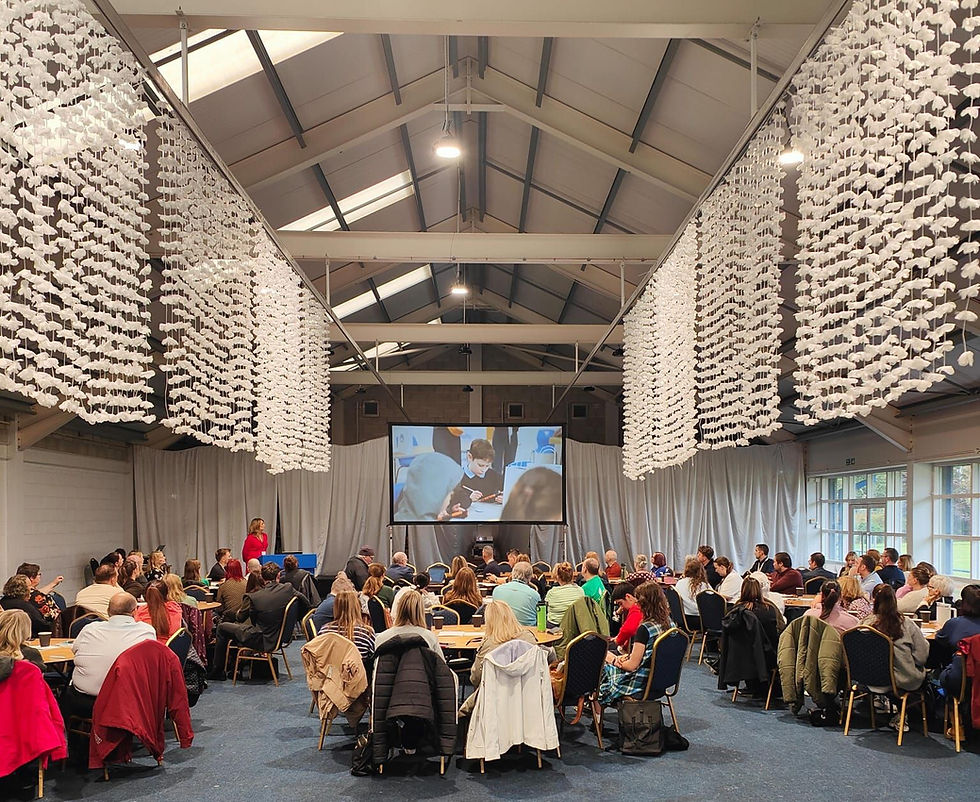'Closing the Disadvantage Gap: Why the system is failing the UK's most vulnerable children and young people'
- Ophelia Parish
- Sep 10, 2024
- 3 min read

The gap between the educational outcomes of disadvantaged and vulnerable students is one of the greatest challenges facing our education system today. As the cost-of-living crisis and after-effects of COVID-19 continue to plunge more families into poverty, this gap has continued to widen further stunting vulnerable children’s and young people’s futures.
This achievement gap, often referred to as the "disadvantage gap," sees disadvantaged students consistently falling behind. Research shows a concerning trend: disadvantaged students are already 9 months behind by the end of primary school, widening to a staggering 18 months by the time they leave secondary school. An analysis by Teach First shows that, in 2019, 45% of disadvantaged pupils achieved a standard pass (Grade 4) in GCSE Maths and English, compared with 72% of non-disadvantaged pupils.

External factors in homelife and society also have a big impact on children and young people’s academic performance. Factors such as housing, nutrition, transport and clothing can affect access to education, impacting students’ ability to learn. These issues can sometimes be the biggest barriers to learning.
Through the use of a place-based change approach we are able to tackle some of these issues. This approach involves building relationships with communities and recognises that those who live and work in the place will have the best understanding of the problems it faces and ideas on how these issues can be addressed.
Right to Succeed tackles this challenge through a unique "place-based change" approach. We recognise that communities themselves have the best understanding of their struggles and potential solutions. By building strong relationships with residents and local organisations, we work together to address the root causes of educational disadvantage.
Each year, only 10% of disadvantaged children who leave primary school with their reading below the expected standard get passes in English and Mathematics at GCSE. Our KS3 Literacy programme in Blackpool showcases this place-based change approach by supporting schools to develop a whole-school, whole town approach to improving literacy and supporting children to remain engaged in school.
Our programmes encourage schools to collaborate, including:
Town-wide licences for reading interventions
Joint training sessions with literacy experts
A literacy audit for schools to assess how well they are supporting literacy at all levels and within different subjects.
Right to Succeed works in areas of high deprivation to strengthen the communities and system that can support children and young people. All our programmes include a strong focus on literacy; without this core skill, the opportunities open to children and young people remain limited.
In some of the country’s most deprived areas, we have supported communities to break this cycle of disadvantage by:
Closing the literacy gap
Using robust assessments to understand the needs of children and young people
Practitioner training to improve literacy across the whole school and in all subjects
Collaborative working between schools to improve the quality of literacy teaching across the curriculum for all children.
Reducing fixed-term and permanent exclusions
Focusing on diagnostics to understand the root cause of persistent and disruptive behaviour
Implementation of specific interventions and whole-school approaches.
Facilitating integrated working between schools and alternative provision settings to support all children to learn and thrive.
Increasing participation of school leavers in education, employment and training
Developing young people’s agency through one-on-one work with engagement coaches.
Coordinating multi-agency approaches to support young people’s transition to post-16 education, employment and training.
Improving town-wide structures to encourage ownership of the challenges and solutions.
Strengthening communities and increasing access to opportunities
Improving access to and engagement with services.
Encouraging local pride and participation in local decision-making.
Coordinating a multi-agency approach to supporting families, children and young people and delivering joined-up services.
These key themes are all interlinked and by working with the communities to address one or more, we are helping to break the cycle of disadvantage and ensure that every child has the right to success, no matter where they live.



